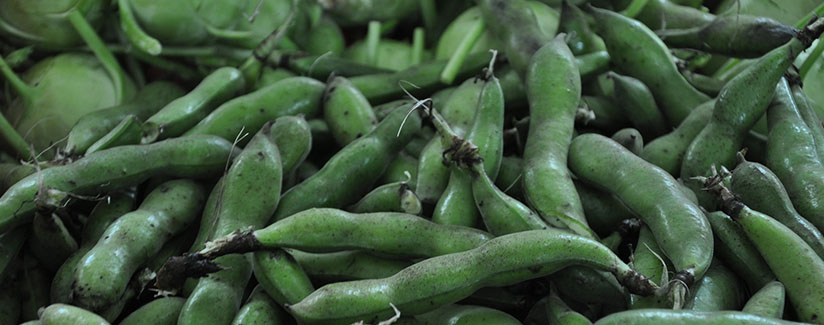
Organic Food: How Much is Imported?
A reader recently asked, “What percentage of organic food consumed in the United States comes from imported/foreign producers?” We posed the question to Dr. Ted Jaenicke, associate professor of agricultural economics at Penn State University, and Dr. Carl Winter, director of the FoodSafe Program at the University of California at Davis.
How much of the organic food consumed in the U.S. is imported and what are the main products?
Dr. Jaenicke:
To my knowledge, good statistics do not exist on the share of organic food in the U.S. that is imported. However, I’ve been involved with two industry surveys that provide some information on imported organic food.
One study was a nationwide survey of U.S. food retailers covering their organic marketing and procurement practices in 2008. We found that 69 percent of U.S. food retailers who responded to our survey reported importing at least some organic products for sale in 2008. The surveyed companies also reported that they imported a total of 19 percent, on average, of all organic products for sale.
A second study was a nationwide survey of certified organic food “handlers” (e.g., processors, brokers, wholesalers, etc.). This 2007 study was led by the U.S. Department of Agriculture’s Economic Research Service. About 37 percent of respondents reported importing organic products. The share of imports based on volume varied widely across different products. The product categories with the highest percentage volumes of imported organics were coffee, tea, and cocoa (81%), followed by oilseeds, grains, legumes and feed (61%), fruits/tree nuts (56%), and vegetables and melons (54%).
Lastly, the USDA only recently started tracking organic imports and exports. Preliminary data show that coffee, soybeans, and tea were some of the leading organic imports.
Is there any reason to be concerned about purchasing imported/foreign organic food? In other words, do other countries follow U.S. production regulations?
Dr. Jaenicke:
In theory, there is no reason to be concerned about imported organic food because organic food coming into the U.S. must follow U.S. regulations. But in practice, U.S. consumers do have concerns. Our 2009 survey of U.S. food retailers found that 29 percent of surveyed retailers discontinued an imported organic product because of consumer concerns over geographic origin. In addition, according to the USDA’s National Organic Program, there have been 23 cases of fraudulent organic certificates between February 11, 2011, and June 7, 2013. Nine of the 23 fraudulent certificates involved Chinese companies.
Dr. Winter:
Foods entering the U.S. from other countries are required to meet the same standards as those produced in the United States. Fruits and vegetables that are imported have higher violation rates than do domestic fruits and vegetables, but the differences are not a health concern and some of my own research has suggested that typical consumer exposure to pesticides in the U.S. is actually lower from imported fruits and vegetables than from domestic.
What are some of the reasons people prefer organically produced food?
Dr. Jaenicke:
Two of the biggest reasons are that organic food is perceived by some to be healthier or better for the environment. Some consumers are also trying to avoid foods containing GMOs. And, finally, some consumers may be trying to favor smaller, more independent food growers and manufacturers that are often, but not always, associated with organic food. Some of these reasons overlap, and it has been very difficult for researchers to untangle them and assess some sort of ranking to the reasons.
Dr. Winter:
While food safety concerns are frequently considered in the purchase of organic foods, there are many other issues such as environmental impacts, worker safety, support of local farms, and avoidance of GMOs that may influence consumer choice regarding organic foods.
From a scientific perspective, what are your thoughts on choosing organic over conventionally raised food?
Dr. Jaenicke:
The scientific perspective, especially on potential health benefits of organic foods, is very mixed, and it would be easy to think that consumers could be confused. For example, a 2012 Stanford University study made waves by concluding that organic meat and produce is no more nutritious than conventionally grown foods. However, a different study from Newcastle University in England, which appeared a year earlier but reviewed many of the same previous studies, came to an opposite conclusion. Clearly, consumers are getting mixed messages.
The scientific perspective is rather clear on one message, however: Almost all scientific studies find that organic produce has a lower level of pesticide residues than does conventionally grown produce. But even here, the scientific community does not provide a clear take-home message for consumers. The reason is that there is no conclusive statistical research that the higher levels of pesticides found on conventional produce causes adverse health outcomes.
Dr. Winter:
As a food toxicologist, I find that there is very little difference between organic and conventionally produced foods in terms of food safety. The most important message is that consumers continue to eat large amounts of fruits and vegetables, and whole grains, regardless of the method used for producing them or where they are produced.
“organic food mela” by Hari Prasad Nadig is licensed under CC BY SA.



























